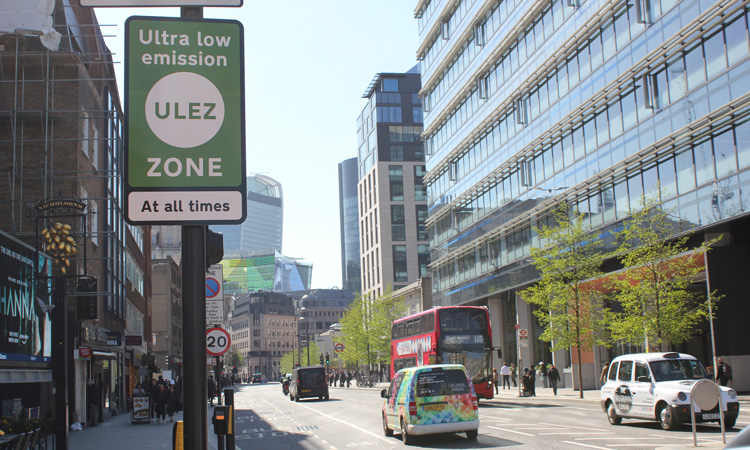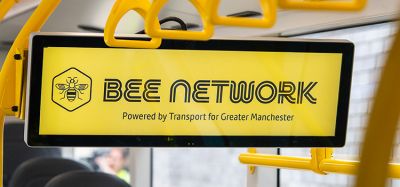ULEZ expansion in London dramatically reduces air pollution, says new report
- Like
- Digg
- Del
- Tumblr
- VKontakte
- Buffer
- Love This
- Odnoklassniki
- Meneame
- Blogger
- Amazon
- Yahoo Mail
- Gmail
- AOL
- Newsvine
- HackerNews
- Evernote
- MySpace
- Mail.ru
- Viadeo
- Line
- Comments
- Yummly
- SMS
- Viber
- Telegram
- Subscribe
- Skype
- Facebook Messenger
- Kakao
- LiveJournal
- Yammer
- Edgar
- Fintel
- Mix
- Instapaper
- Copy Link
Posted: 14 February 2023 | Intelligent Transport | No comments yet
The ULEZ expansion in inner London brings significant reduction in emissions and air pollution; however, more action is still needed as over half of air pollution-related deaths have been found to occur in outer London.


The first year of the Ultra Low Emission Zone (ULEZ) expansion in inner London has achieved a significant reduction in emissions and air pollution, as well as a huge increase in the share of vehicles that meet the ULEZ standards, according to a major new report from City Hall1.
Despite huge progress, the whole of London still exceeds the World Health Organization’s guidelines for air quality, and over half of deaths attributable to air pollution are in outer London.
Around 4,000 Londoners die prematurely every year due to toxic air, and the new report shows that the Mayor’s air quality policies, in particular the ULEZ and LEZ schemes, are having a transformative impact – cutting the number of older, more polluting vehicles seen driving in London and reducing the levels of harmful air pollution.
The ULEZ had first been introduced in central London in 2019 and expanded to inner London in October 2021. According to the report, the ULEZ expansion has built on the environmental benefits that have been achieved over the years, with harmful nitrogen dioxide (NO2) levels 46% lower in central London and 21% lower in inner London than they would have been without the scheme.
Due to the expansion of the ULEZ in inner London, NOx emissions have reduced by 23% (13,500 tonnes) across London cumulatively since 2019 compared with what they would have been without the ULEZ. Within the existing ULEZ area, emissions have dropped by 26% (5,000 tonnes) over the same four-year period, compared with what they would have been.
London’s Ultra Low Emission Zone to be expanded to all boroughs
Furthermore, the number of older, more polluting vehicles in the zone has also continued to reduce significantly, dropping by 60% since the inner London expansion came into operation in October 2021 – an average reduction of 74,000 polluting vehicles every day seen driving in the zone. Overall, there have been nearly 50,000 fewer vehicles seen in the zone on an average day – a reduction of almost 5% compared to the month prior to the expansion.
The Mayor had announced in November 2022 that the ULEZ will be expanded across all London boroughs in August 2023 to help bring the air quality and associated health benefits to the five million people living in outer London.
“The evidence from this landmark report is clear – the ULEZ works. This is beyond dispute. It has already reduced toxic air pollution by almost half in central London and by over a fifth in inner London, transforming the quality of air for four million Londoners. But there’s still more to do. Toxic air is a matter of life and death, with around 4,000 deaths in London attributed to air pollution in 2019,” said The Mayor of London, Sadiq Khan. “With the majority of deaths attributable to air pollution in outer London, it’s vital that we expand the ULEZ London-wide.”
“This report is further clear evidence that the ULEZ is highly effective and does what it is designed to do, protect Londoners’ health and significantly reduce pollution. It is great to see that significant numbers of people have moved away from older, more polluting vehicles and some of the most deadly emissions have been cut by a quarter,” said Christina Calderato, Transport for London’s Director of Strategy and Policy. “We are also cleaning up our fleet with around 900 zero-emission buses and through our licensing requirements more than 40% of the capital’s black cabs are now running on electric. We know that ahead of the ULEZ expanding in August (2023) some people will need help making the green transition, which is why we have introduced new grace periods for disabled people and made £110 million available to charities, smaller businesses, disabled Londoners and those on low-incomes to scrap their vehicles that don’t meet the standards.”
References
- This report has been peer reviewed by Dr Gary Fuller of Imperial College London.
Related topics
Air Quality, Passenger Experience, Sustainable Urban Transport, Transport Governance & Policy
Related cities
London
Related countries
United Kingdom
Related organisations
City Hall, Imperial College London
Related people
Christina Calderato, Sadiq Khan








